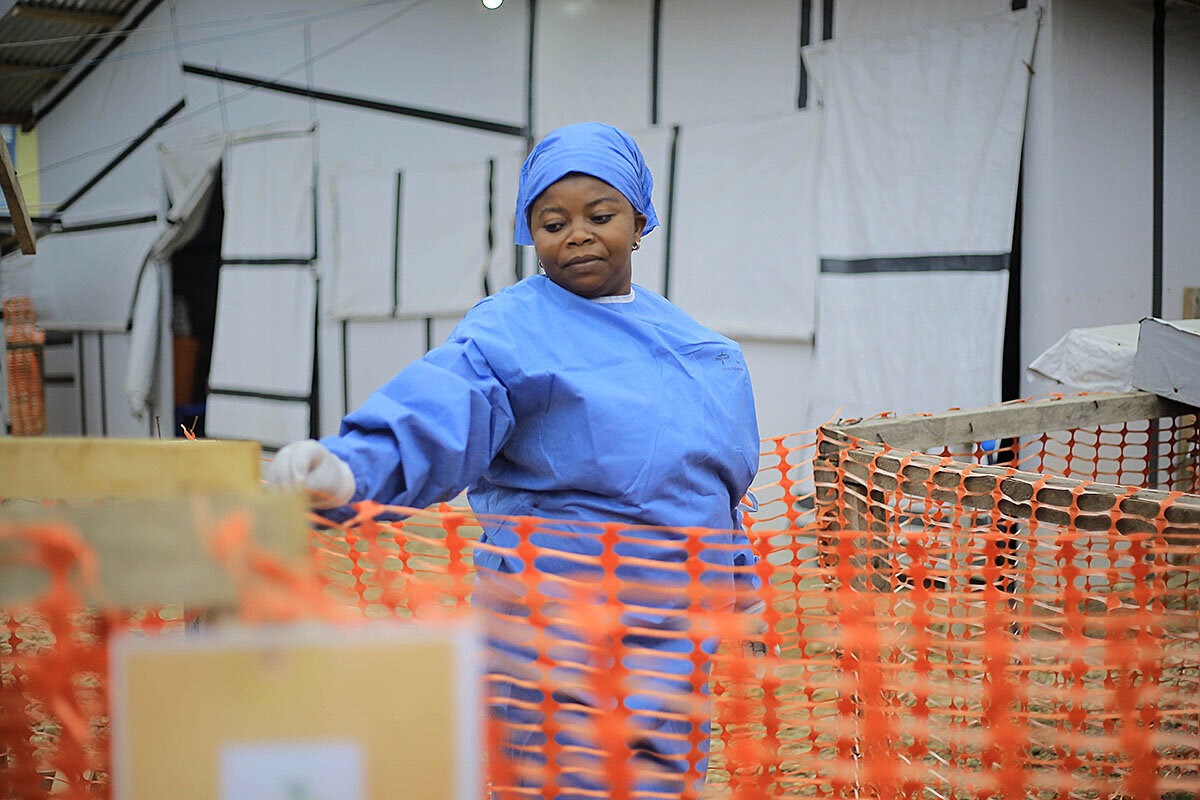The current protests in Chile can seem a long way away. But they point to a core challenge facing democracies worldwide: a growing demand for some appropriate equality of opportunity.
Monitor Daily Podcast
- Follow us:
- Apple Podcasts
- Spotify
- RSS Feed
- Download
 Mark Sappenfield
Mark Sappenfield
Today’s five hand-picked stories examine a universal message from unrest in Chile, the courage of protesters in Lebanon, a Monitor chat with an Election Day newsmaker, the extraordinary grace of Ebola survivors in Congo, and the fantastical world of author Erin Morgenstern.
But first, 100 years ago this week, Albert Einstein redefined the world’s sense of reality. Here are The New York Times’ headlines the day the general theory of relativity was confirmed on Nov. 10, 1919:
“Lights All Askew In the Heavens. Men of Science More or Less Agog Over Results of Eclipse Observations. ... Stars Not Where They Seemed or Were Calculated to be, but Nobody Need Worry.”
Scientists had just proved that gravity warps space-time – that in the most extreme conditions, one point of perception is not absolute. As the century wore on, quantum mechanics threw science into further disarray, suggesting to some that, on the most micro levels, perception could actually influence the activity of the universe.
It is a reminder of science’s most wonderful attribute: its ability to completely change how we see everything. At the moment, physics is in a bit of a dry spell. General relativity and quantum mechanics pose many questions that have yet to be answered. But they will be, and they will shake us to our core.
At a time when so much of the world seems concreted into inflexible opinions on everything from immigration to economics, it’s a welcome reminder. New perspectives can lead to remarkable new vistas.










